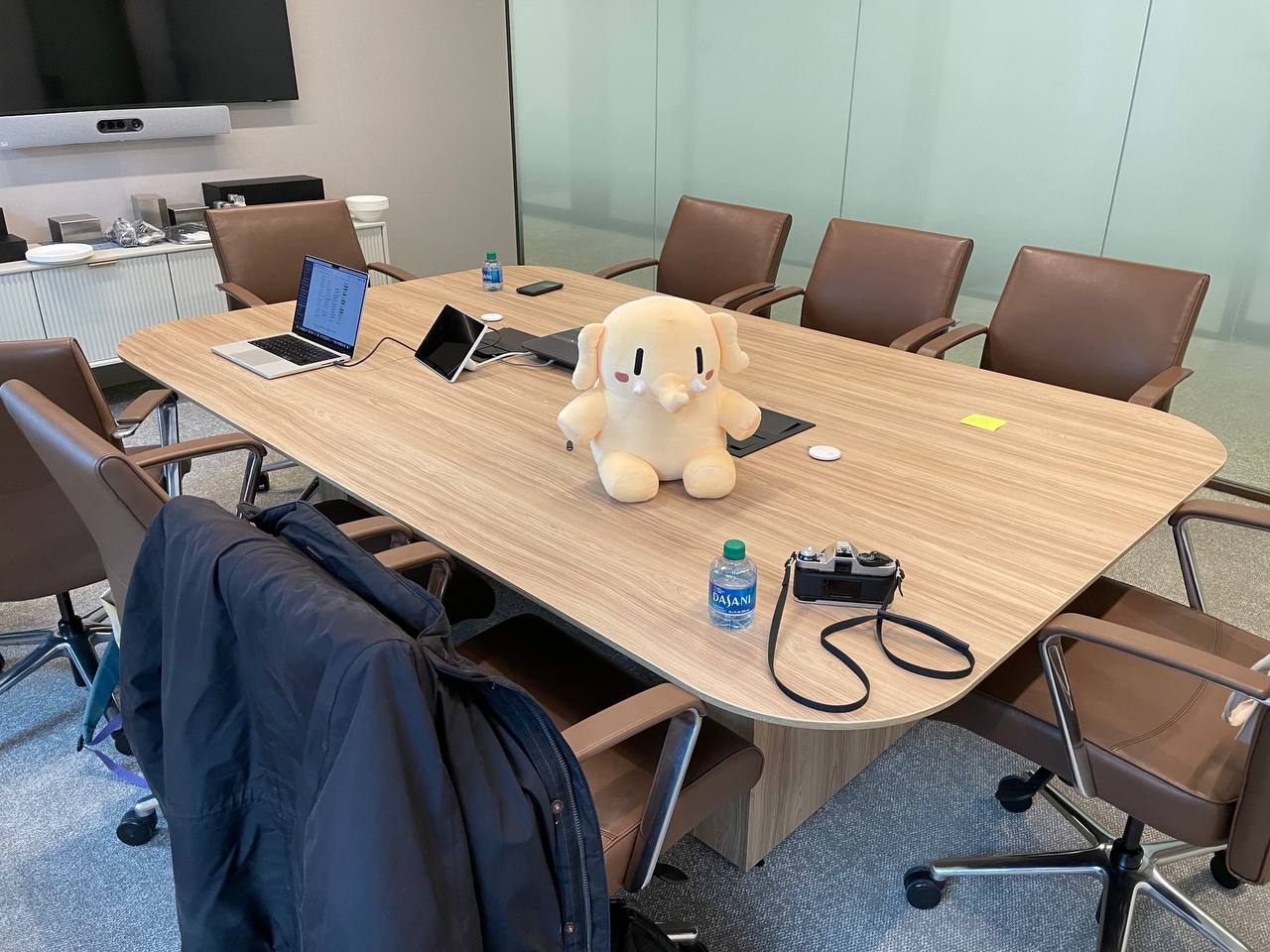Mastodon forms new U.S. non-profit

Eugen Rochko
CEO / Founder

As part of our commitment to supporting the growth and operational capabilities of Mastodon, we have established a 501(c)(3) non-profit entity in the United States aimed at facilitating our efforts, including being able to receive tax-deductible U.S. donations and in-kind support.
We’re excited to announce the Board of Directors governing this newly formed entity:
Esra’a Al Shafei is a human rights advocate and founder of Majal.org, a network of digital platforms that amplify under-reported and marginalized voices in Southwest Asia and North Africa. She is also the co-founder of the Numun Fund, the first dedicated fund for feminist tech in the Global Majority. Esra’a currently serves on the Board of the Wikimedia Foundation, the nonprofit which hosts Wikipedia. She is also on the Board of the Tor Project, developers of one of the world’s strongest tools for privacy and freedom online.
Karien Bezuidenhout is an advocate for openness and supporter of social entrepreneurs. As the former director of the Shuttleworth Foundation, her core interest lies in social and policy innovation through practical interventions and sustainable social enterprises. Through her experience as a board member to social change organisations and social enterprises across the world, she strives to make connections that accelerate learning.
Amir Ghavi leads Fried Frank’s core technology practices as the co-head of the Technology Transactions Practice, where he advises clients on cutting edge technology and intellectual property matters. Amir is also a regular speaker, panelist and commentator to the media on digital assets and quantum computing.
Felix Hlatky has been the Chief Financial Officer of Mastodon since 2020. Felix helped Eugen by incorporating the project in a non-profit LLC in Germany and raising additional funds from Prototype Fund, NLnet and GLS Bank. Felix is the CEO of SOLARYS, a company developing software for volunteer firefighters in the DACH region.
Biz Stone is an entrepreneur best known as a co-founder of Twitter, one of the world’s leading social media platforms. Biz’s career spans various facets of technology and social networking, including contributions to the development of blogging, podcasting, and social media. Beyond Twitter, Biz has engaged in various philanthropic efforts and tech ventures, emphasizing the importance of corporate responsibility and the potential of technology to address societal challenges.
The board was selected based on the values they share with Mastodon, their valuable experience and their commitment to helping build and grow the fediverse.
With additional guidance of this Board and the incredible support of our growing communities, Mastodon will remain firm in its mission of offering free, open-source decentralized social media.
Mastodon’s non-profit status in Germany
We’ve always been worried that developing Free and Open Source Software would not be recognized as a charitable cause by the German tax system, so we were glad when the tax office originally approved our non-profit status in 2021. But now we have received a notice from the same tax office that our non-profit status has been withdrawn. This came with no advance warning or explanation. Earlier this year we went through a successful tax audit, which in fact resulted in some favourable adjustments as we’ve been paying too much tax. Our tax advisor immediately submitted an appeal to the decision, but so far, we have no new information.
We can only guess as to the cause. Our activities have been the same since 2016: We produce Free, Open Source Software and run a free service for the public in the form of mastodon.social. We pay employees, developer and designer contractors, and hosting and service fees for tools necessary for company operation. We further the cause of decentralized, privacy-friendly social media. Our income flows largely from the crowdfunding platform Patreon.
Our day to day operations are largely unaffected by this event, since Patreon does not presuppose non-profit status, and Patreon income does not count as donations. We have in fact not had to issue a single donation receipt since 2021. The significance of the non-profit status is in communicating our commitment to the cause of creating social media that serves the interests of its users instead of its shareholders. We now have the 501(c)(3) in the US to fill the gap. However, it’s also important for us that Mastodon is one of the few, if not the only social media platform that operates out of the EU, and we would like to keep it that way.
Looking onward
In summing up this round of news, 2024 has both been extremely busy and exciting as Mastodon’s governance and legal structure evolves. We see these changes as necessary developments to reach Mastodon’s ambitious goals. In realizing Mastodon’s potential, we are deeply grateful to Jeff Atwood and Mozilla for contributing $100K each this year to support Mastodon’s growth.
We hope to continue fundraising throughout the year so we can move past simply sustaining Mastodon’s current operational and development capacity and focus on growth and greater impact. Most people don’t realize the core developer team of Mastodon is still just two people, and it is these last donations that have allowed us to open a third full-time developer position.
The interest in the fediverse is unprecedented this year, and it will mark a huge milestone in Mastodon’s journey. If you’re interested in being involved in any fundraising efforts or if you’re a funder interested in making a contribution, please reach out! We’re always happy to hear from anyone with as much passion for the open social web as we are.
US entity name: Mastodon, Inc.
EIN: 92-3333630
FAQ
Why found a 501(c)(3) instead of doing ____?
Long story short, it has been cited as a prerequisite by every non-profit foundation or fund that we’ve spoken to about supporting Mastodon development. This is important because in order to do what we want and need to do, we need funding. We do not want VC funding and we do not want to sell any part of the code or operations to anyone. Mastodon is vastly under-resourced. This is a considerable threat to being able to maintain the code base and the services we offer. Seeking funding from the US is one of the avenues we are exploring, and without a 501(c)(3) this would not be viable.
Is the 501(c)(3) a response to losing non-profit status in Germany?
No, the timing is a mere coincidence. Founding a 501(c)(3) entity, interviewing and assembling a board, and getting the tax exemption as a recognized non-profit from the IRS is no quick process and has taken us close to a year. It was just lucky timing that we got our approval from the IRS now, as this helps with a backup plan for any urgent operational or financial needs that we can’t fulfill through the German entity. If we don’t regain non-profit status in Germany through any appeals, we will explore alternative structural options in Germany, or in other European jurisdictions, as needed.
What is the relationship between the US structure and the German one?
Mastodon is bigger than any single entity, but it does need formal structures to operate effectively. The first of these was the Germany-based non-profit (Mastodon gGmbH). The second is now the U.S. non-profit (Mastodon, Inc.). Mastodon product development, user data, trademarks and copyright are in the hands of the German Mastodon gGmbH. Mastodon, Inc. creates the opportunity to raise funds from U.S. sources for the project at large, as well as build relationships and explore partnerships beyond Europe. While Mastodon is firmly based in Europe, we do not want to limit our engagement potential.
Will the operations continue from Europe, or move to the US?
Primary operations will remain led by the Germany-based entity.
What power do the Board have over the project?
The Board of the U.S nonprofit does not have the legal powers to make or enforce product-level decisions. They do not oversee day-to-day operations and development of the project. The board oversees the activities specific to the U.S. entity, while advising and supporting the team on key strategic issues.
Why did you choose these Board members?
We have carefully selected people who would be most helpful to the Mastodon project. Felix Hlatky has been the Chief Financial Officer of our German entity for a few years and has played a key role in turning the single-person Patreon project into a non-profit with multiple employees. Amir Ghavi has provided pro-bono support for Mastodon on multiple legal matters over the course of a year and brings a lot of expertise in open source licensing, as well as connections in the tech industry thanks to his prominent position at Fried Frank. Biz Stone as a Twitter co-founder has invaluable experience scaling a social media platform to its first few million users and many connections to experts who are familiar with the problems Mastodon is facing, and Mastodon to him represents the vision of social media as a protocol that could have, but unfortunately did not materialize at Twitter. Karien Bezuidenhout is intimately familiar with the operation of non-profit boards and open source project governance. Esra’a Al Shafei brings expertise in human rights advocacy and privacy matters, and has also served on several tech non-profit boards, which we can learn from.
Does this mean that you sold Mastodon to these people?
No, this is a non-profit and an unpaid Board. None of the Board members made any substantial donations to Mastodon or “bought” their seats for the sake of any controlling powers. The Board does not have ownership over any of Mastodon’s properties.

